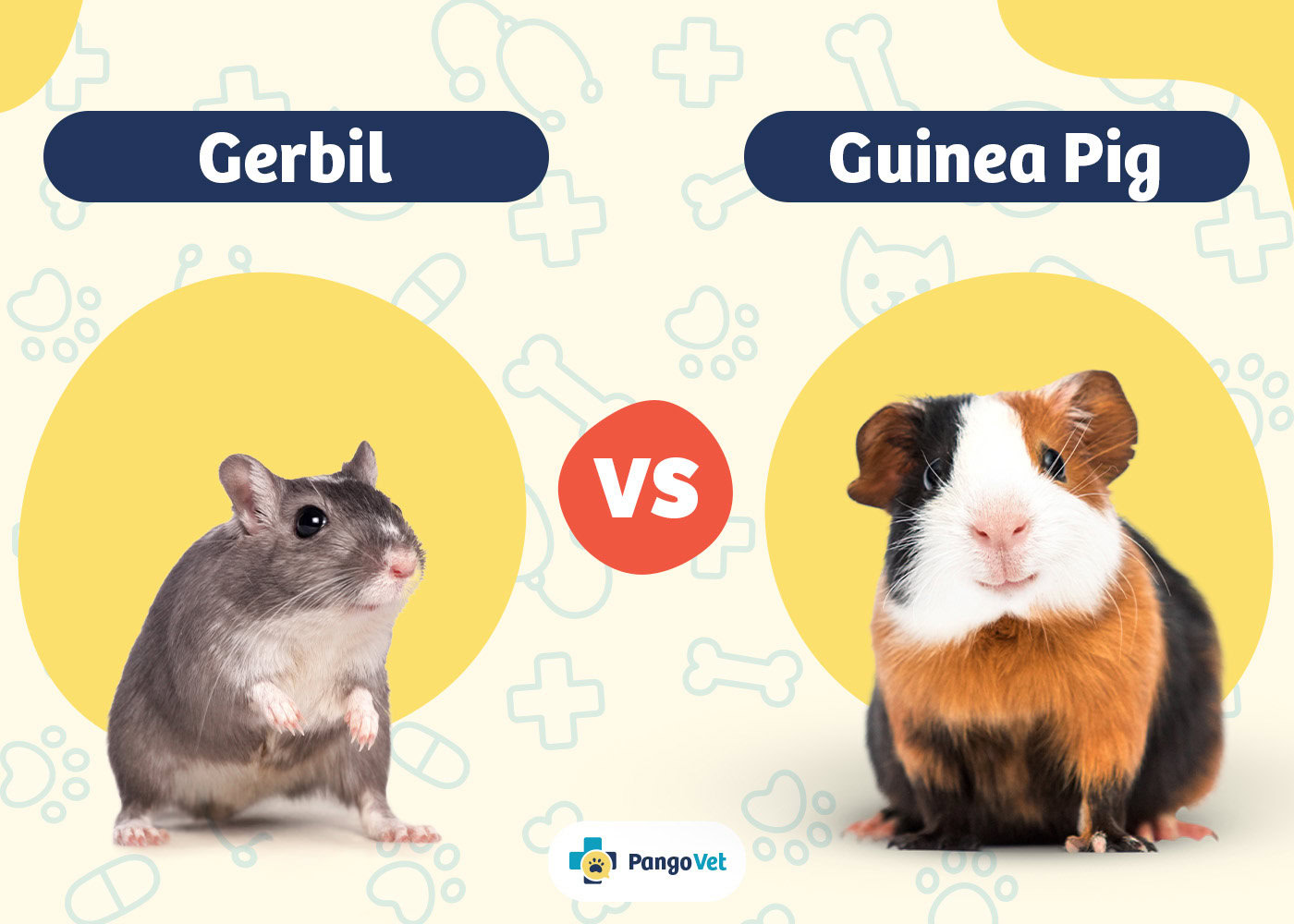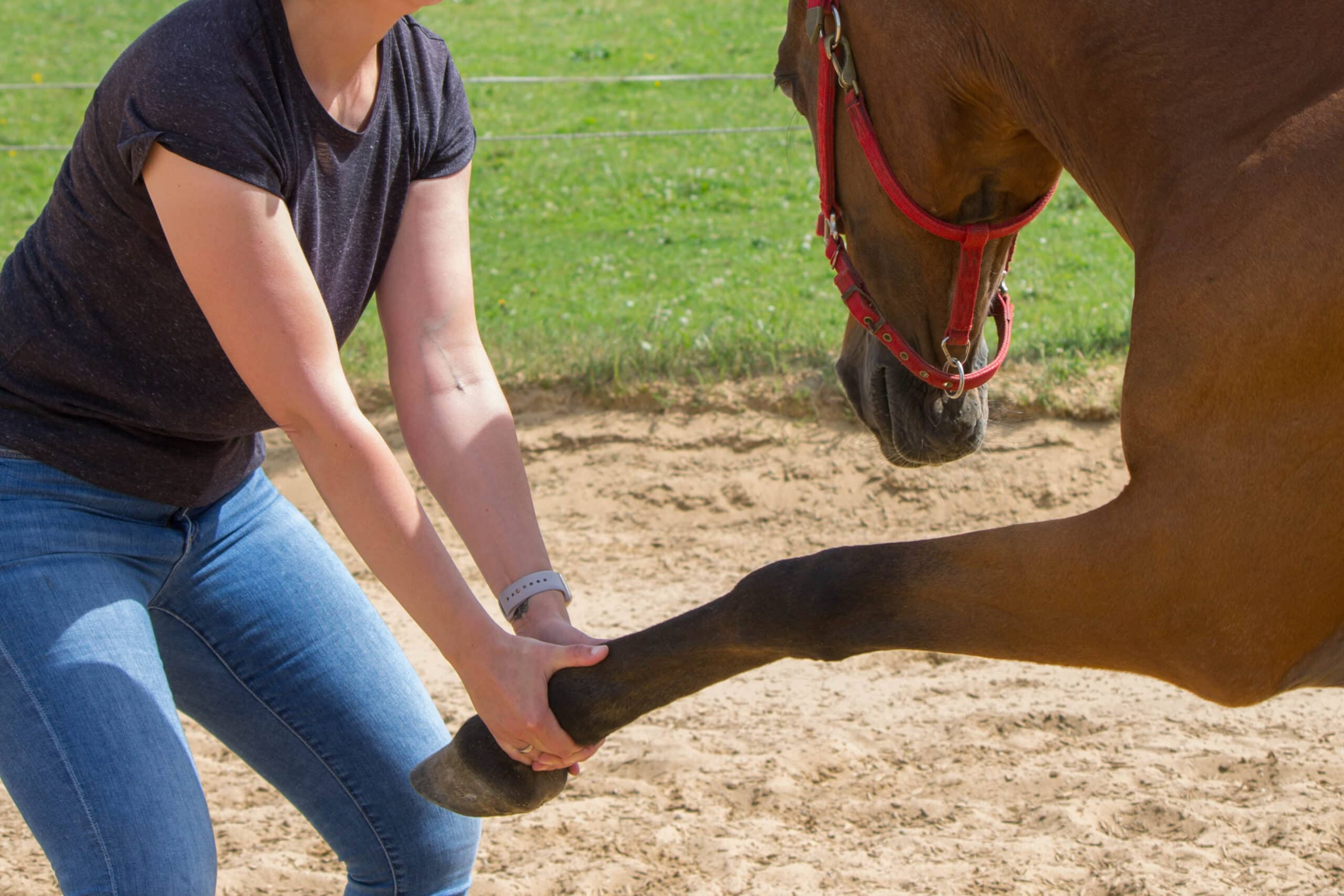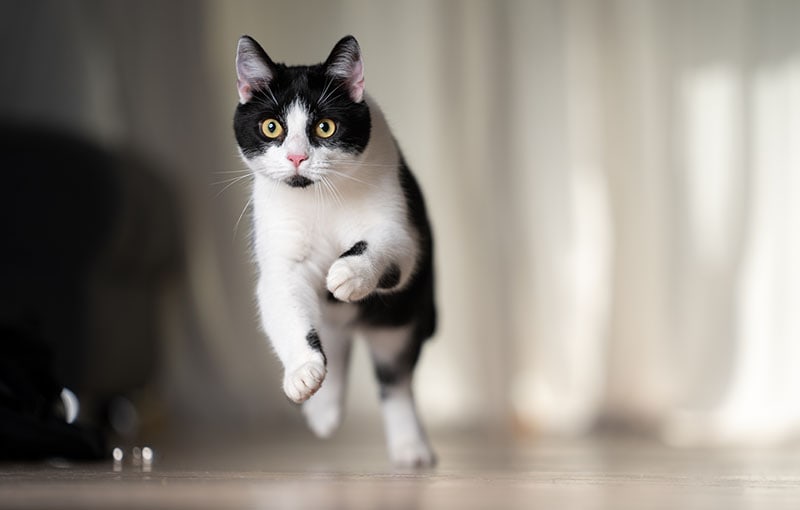VET APPROVED

The information is current and up-to-date in accordance with the latest veterinarian research.
Learn more »Click to Skip Ahead
While cats and dogs are popular companions, they aren’t always the right fit for every lifestyle. Their size, time requirements, or living space needs may not align with what you can currently offer. If you’re looking for a smaller pet that still offers companionship, personality, and daily interaction, gerbils and guinea pigs are both wonderful animals to consider. But how do you decide which one is right for you? Here is a breakdown of the similarities and differences between the two animals to help make your decision.

Visual Differences
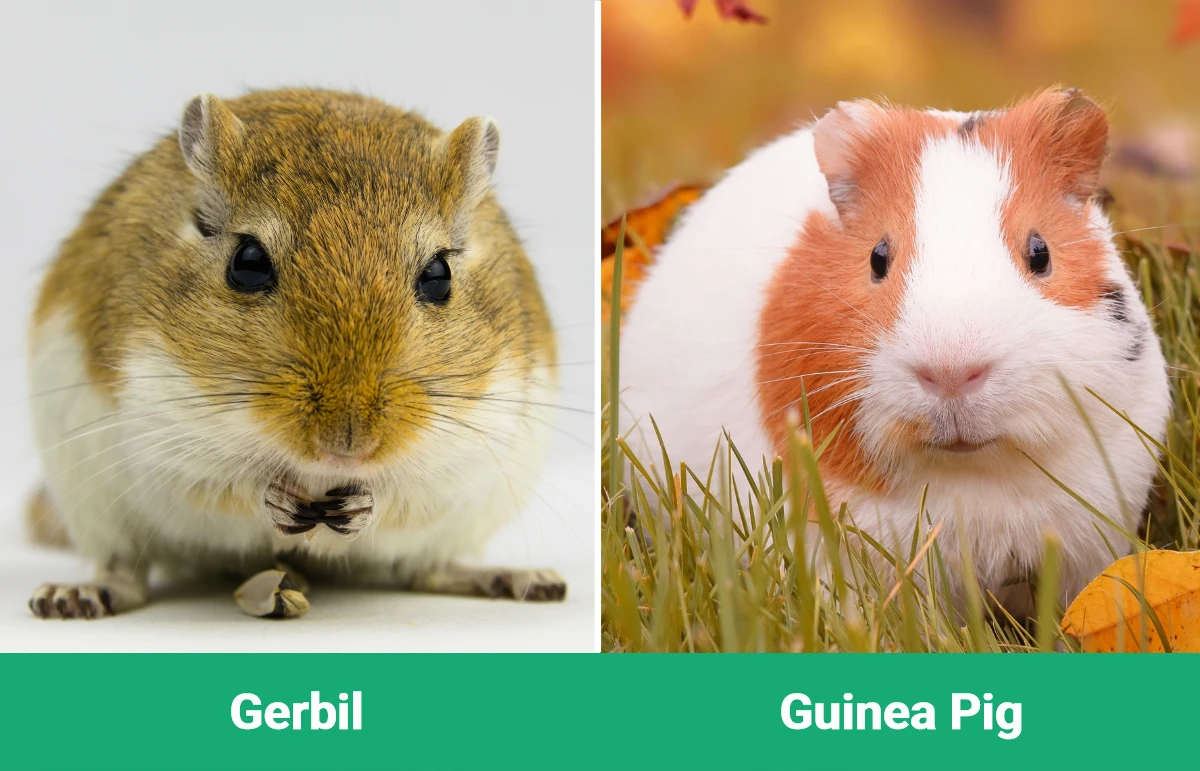
At a Glance
- Average length (adult):4 inches (7 inches including the tail)
- Average weight (adult): 2–3 ounces
- Lifespan: 2–3 years
- Grooming needs: Minimal
- Family-friendly: Yes
- Social Needs: High. Should be kept in pairs
- Other pet-friendly:Usually not
- Average length (adult): 4–5.3 inches
- Average weight (adult): 2–2.6 pounds
- Lifespan:5–7 years
- Grooming needs: Minimal
- Family-friendly: Yes
- Social Needs: High. Should be kept in pairs
- Other pet-friendly:Usually not

Gerbil Overview
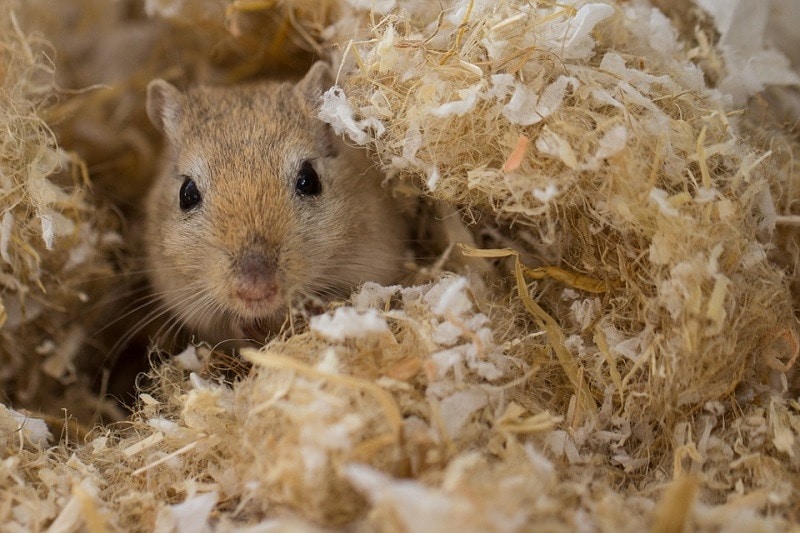
Personality / Character
Gerbils are curious creatures with a playful nature. They are always moving around, frequently digging, sniffing, climbing on things, running, or chewing. Their fearless nature makes it essential to monitor them outside their cage. Because of this level of activity, these little rodents are fun to watch and play with.
Gerbils can be quite affectionate with their owners and they enjoy spending time with you. Although they may enjoy interacting with their owners, it is also important to handle them carefully and respectfully. Don’t startle them, or they will bite. Introduce them to strangers slowly because this sort of interaction can cause stress.
Training
Training a gerbil is primarily done through positive reinforcement. If you want them to do something, you need to incite the action and immediately reward them for it repeatedly. These methods are often used in labs for scientific studies but can be used with plenty of patience in the home environment.
Health & Care
Caring for a gerbil involves feeding them a healthy species-specific diet. They primarily eat parts of plants, which can include fruits, vegetables, and seeds. They need high-quality dry food to keep them happy and healthy. You can buy food specifically for gerbils.
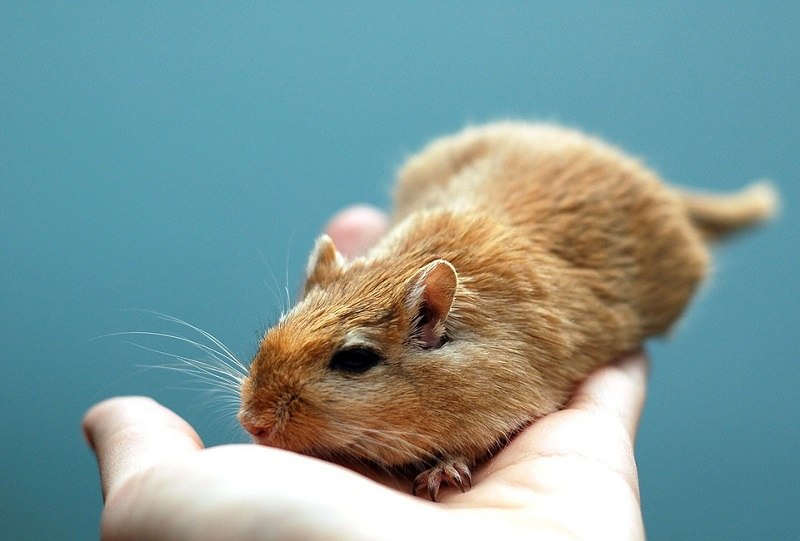
Beyond feeding, they always need access to fresh water and material in their cage to climb or run on because they are active creatures. Give them plenty of space in their cage, and make sure to clean it regularly to keep them healthy. Clean it out at least once a week.
Place their cage in a safe area out of direct sunlight during the day, keep it dry, and keep it out of the direct path of air vents. You should take them out daily to get them accustomed to human interaction and stimulate their minds.
Suitability
Families with older kids are better suited to own gerbils. Since gerbils are so small and delicate, interaction with young children must be supervised.

Guinea Pig Overview
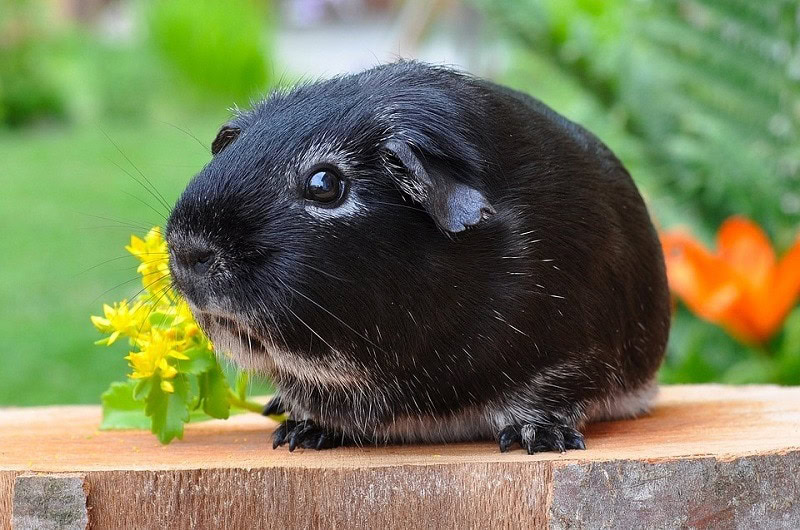
Personality / Character
Guinea pigs are much larger than gerbils and tend to pack on more weight than their skinny, scampering counterparts. They are also very active and quite curious, and want to explore anywhere they can fit.
They have outgoing personalities with people they know, but are timid when they meet new humans or are around other, larger animals. Rodents like gerbils and guinea pigs are prey species, and natural predator species like dogs and cats shouldn’t be allowed around them.
Guinea pigs are known for being quite affectionate. When you have handled them for a while, they can get clingy and don’t like to be separated from you. Out of most small pets, guinea pigs are often the ones you can hold in your lap for the longest.
Training
Guinea pigs have a higher capacity for training because they are intelligent small animals. They are not that flexible, so you can’t expect flips from them. However, you can train them to come when you call their name and even to use a litter box.
Positive reinforcement is an excellent way to train your guinea pig. Guinea pigs are food-oriented, but be careful with how many treats you give them since they struggle with obesity.
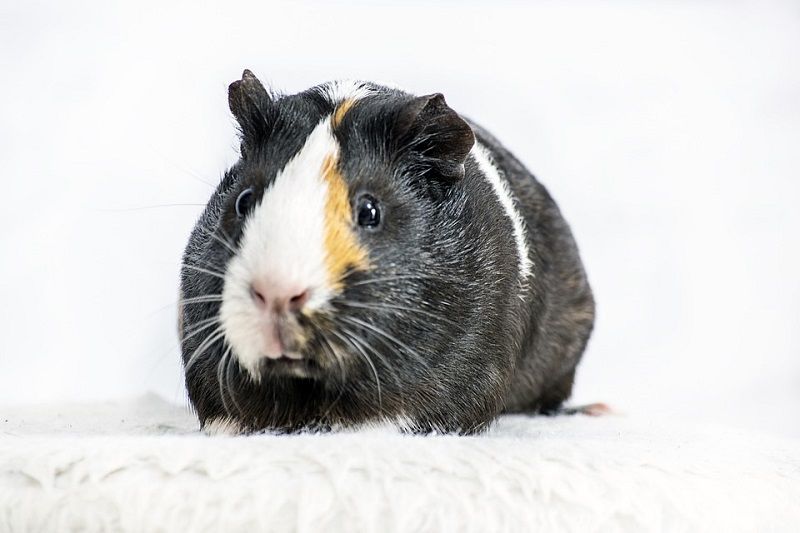
Health & Care
Since guinea pigs are one of the larger domesticated rodents, you should find a cage that will allow them to exhibit their natural behaviors and get plenty of exercise. You can fill the bottom with bedding to make it more comfortable for them. The bedding must be safe to eat because the guinea pig will snack on it. Ensure that their cage is not in a drafty location, and that they feel safe.
Regular exercise helps guinea pigs stay fit and prevents them from gaining too much weight. They should have the opportunity to run around outside of their cage at least once a day. It’s best to avoid taking them outside unless the climate is similar to the indoor temperature.
Suitability
Guinea pigs are suitable for families with children, but small kids should be taught how to handle them carefully. Keep them away from other, larger pets. Being around cats and dogs can be dangerous for them and will likely cause them anxiety.

Which Species Is Right for You?
Gerbils and guinea pigs are both intelligent, social, and rewarding companions, each with their own care requirements and personalities. Guinea pigs are larger and tend to enjoy lap time and gentle handling, making them a great fit for families who want a more interactive small pet. They require more space and regular out-of-cage exercise to stay healthy and happy. Gerbils, on the other hand, are smaller, highly active, and fun to observe. Their playful, curious nature makes them especially entertaining, and they can thrive in more compact environments, as long as their physical and mental stimulation needs are met.
Both species need daily social interaction, proper housing, and respectful handling. Choosing between them depends on your lifestyle, available space, and the type of relationship you’re hoping to build with your pet. Whichever you choose, you’ll be welcoming a unique and fascinating animal into your home.
Featured Image Credit: Top – simbagolden, Shutterstock | Bottom – vantagepointfl, Pixabay
